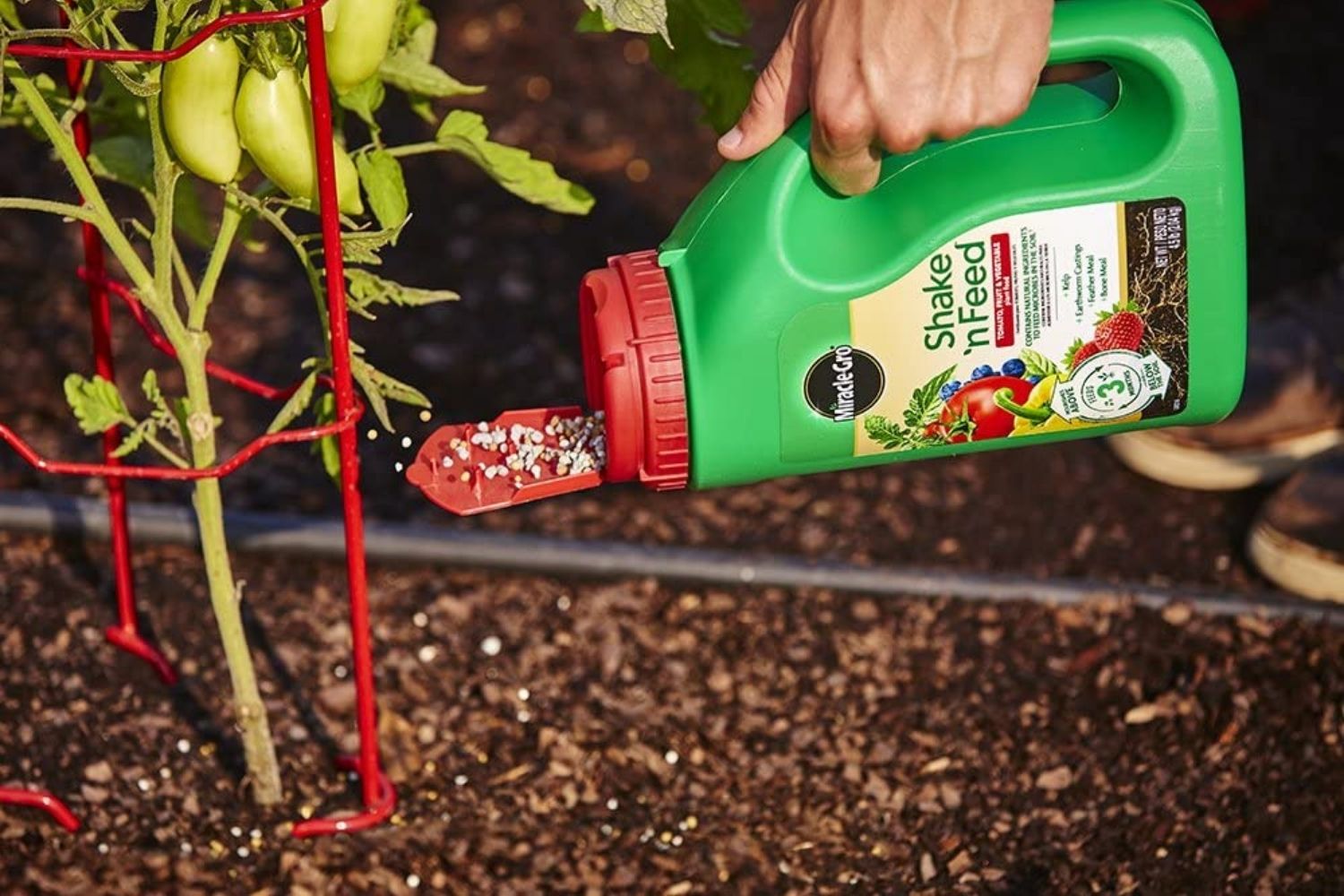Organic Vs. Synthetic Fertilizers: Which Is Best for Nurturing Healthy And Balanced Pepper Plants?
In the world of supporting healthy and balanced pepper plants, the choice between synthetic and organic fertilizers stands as a critical choice with far-ranging ramifications. While both options objective to provide important nutrients to sustain plant growth, the nuances of their influence on the soil, plant health, and the setting stimulate an argument that echoes throughout the gardening community. Understanding the distinctive advantages and possible risks of each plant food type is critical for pepper cultivators seeking to enhance their returns while keeping an eco-conscious and lasting approach.
Advantages of Organic Fertilizers
Organic plant foods supply a sustainable and environmentally-friendly technique to beneficial pepper plants, offering important nutrients without using synthetic chemicals. These all-natural fertilizers are obtained from natural resources such as garden compost, manure, bone meal, and algae, advertising dirt health and biodiversity. Unlike artificial fertilizers, natural alternatives release nutrients gradually, guaranteeing a well balanced and steady supply for pepper plants to prosper.
One substantial benefit of organic plant foods is their capacity to enhance soil framework and water retention. By enhancing dirt health, organic fertilizers promote valuable microbial activity, which assists in nutrient uptake by pepper plants. Furthermore, natural plant foods lower the threat of chemical run-off, securing water resources from air pollution and safeguarding the environment.
Moreover, organic plant foods add to long-lasting soil fertility by advertising the development of beneficial dirt microorganisms. These organisms help damage down natural matter, releasing nutrients in a kind that is conveniently obtainable to pepper plants. best fertilizers for peppers. By cultivating a healthy dirt ecosystem, natural plant foods support sustainable pepper farming practices that benefit both plants and the environment
Drawbacks of Synthetic Plant Foods
Synthetic plant foods, in contrast to their organic counterparts, posture numerous disadvantages when utilized to nourish pepper plants, influencing both plant health and environmental sustainability. One significant downside of artificial plant foods is their tendency to seep nutrients from the soil swiftly. This quick leaching can lead to vitamins and mineral inequalities in the dirt, creating plants to experience from shortages or toxicities. In addition, synthetic fertilizers can hurt valuable dirt microorganisms, such as earthworms and helpful bacteria, interrupting the soil ecological community's balance.
In addition, the overuse of artificial plant foods can add to water pollution. Excess fertilizers not soaked up by plants can remove right into water bodies, leading to eutrophication, where algae blooms diminish oxygen levels in the water, hurting water life. In addition, synthetic fertilizers are commonly derived from non-renewable resources, such as fossil fuels, adding to carbon discharges and environmental destruction throughout their production.
Nutrient Absorption Comparison
When contrasting natural and synthetic plant foods in terms of nutrient absorption, natural plant foods have the benefit of supplying an extra balanced and slow-release resource of nutrients. Organic plant foods have a range of macro and trace elements visit here that are not just beneficial for the plants but likewise advertise healthy and balanced dirt microbial activity, which assists in nutrient uptake.
Moreover, organic fertilizers boost soil structure and water retention capacity, allowing pepper plants to gain access to nutrients more efficiently. This better soil high quality helps with origin growth, making it possible for much better nutrient absorption. Synthetic fertilizers, although initially increasing plant development as a result of their high nutrient focus, might hinder lasting nutrient absorption by degrading dirt health and wellness with time.
Ecological Influence Factors To Consider

On the various other hand, artificial fertilizers, although commonly even more concentrated and promptly offered to plants, can have harmful results on the environment otherwise used properly (best fertilizers for peppers). Their production calls for high energy inputs, bring about greenhouse gas discharges and adding to climate adjustment. Additionally, the overflow of excess artificial fertilizers can contaminate water resources, causing eutrophication and damaging aquatic environments.
Finest Plant Food Practices for Peppers
To attain this, it is essential to follow finest fertilizer techniques customized to the details requirements of pepper plants. One vital practice is to execute a dirt test prior to applying any kind of plant foods.
Another vital method is to feed pepper plants at the appropriate time. Typically, peppers gain from receiving fertilizer at growing and afterwards again when they begin to blossom. Over-fertilizing can result in vitamins and mineral imbalances and hurt the plants, so it is important to comply with recommended application rates.
Furthermore, picking a well balanced fertilizer with an NPK ratio that fits pepper plants' needs is essential. Eventually, incorporating organic and synthetic plant foods judiciously can assist support healthy and balanced pepper plants while reducing environmental impact.
Conclusion

Organic fertilizers supply a lasting and environmentally-friendly strategy to nourishing pepper plants, offering vital nutrients without the use of synthetic chemicals. Unlike artificial fertilizers, organic choices launch nutrients gradually, making certain a balanced and consistent supply for pepper plants to flourish.
Synthetic fertilizers, in contrast to their natural counterparts, posture different downsides when used to nourish pepper plants, influencing both plant health and ecological sustainability. When contrasting natural and synthetic fertilizers in terms of nutrient absorption, natural plant foods have the advantage of supplying an extra balanced and slow-release resource of nutrients.Furthermore, natural fertilizers improve dirt structure and water retention ability, enabling pepper plants to access nutrients more successfully.